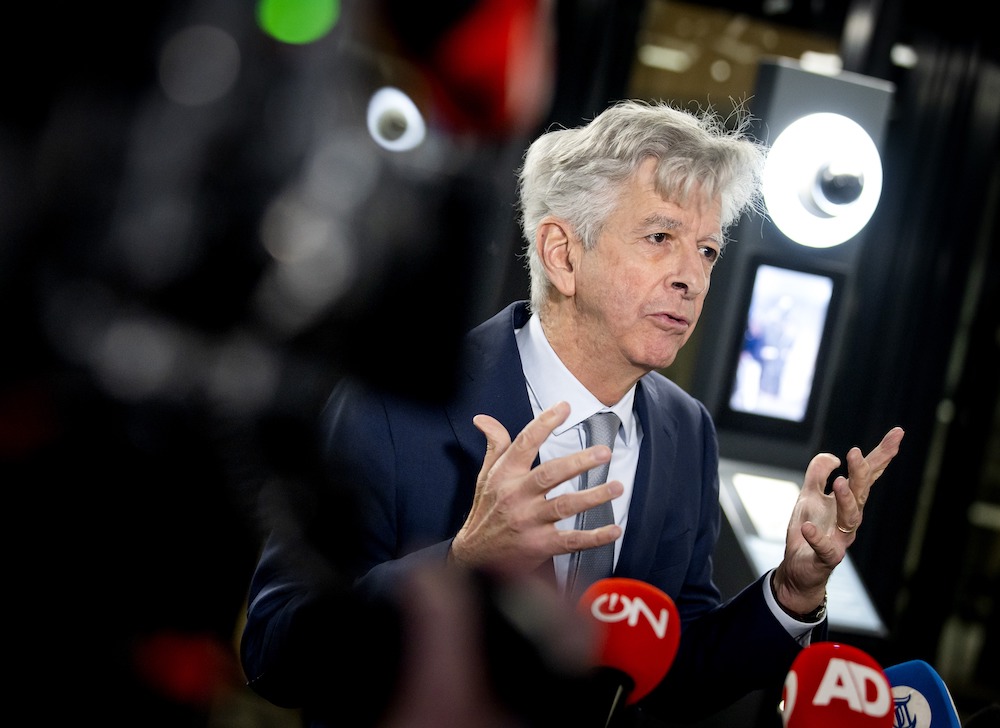Coalition talks resume late on Monday, two months after election

Talks on forming a new Dutch government will resume on Monday afternoon, 61 days after the general election.
Lead negotiator Ronald Plasterk has invited the four parties – far-right PVV, the pro-countryside BBB, the right-wing Liberal VVD and new party NSC – to meet for talks from 3 pm on January 22 – two months after the country went to the polls. The parties last met on Thursday.
The four parties are currently in talks to try to settle their differences about the importance of the constitution and rule of law. Several PVV policies conflict with the constitution and with treaties that the Netherlands has signed.
On Sunday, D66 leader Rob Jetten said the four parties should make it clear if they are actually prepared to make a new coalition happen. “It is time to stand up and be counted,” Jetten said on current affairs show WNL op Zondag. “Make it clear now. Are we going to do this or not?”
VVD stalwart Henk Kamp said during the same show that the formation process should not take too long. “Before you know it, it will be six months on,” he said. The election results – in which the far right PVV emerged as the big winner, albeit it with less than 25% of the vote, made the four parties the “logical” choice, he said. “But I don’t know in what form and who should be in it.”
Laurens Dassen, leader of the pan-European party Volt, however, has described the VVD, NSC and BBB’s decision to sit at the negotiating table with the PVV as “indefensible”.
Party leader Geert Wilders, he said on Saturday at a congress ahead of the June European elections, is “a false prophet” who has seduced 2.5 million Dutch people by telling them that “Europe and its freedoms are for a few, not for everyone.”
The three parties in talks with Wilders are “playing with fire”, he said. They are negotiating with an “anti rule of law one person party” on preserving the rule of law, he said. “Democracy and the rule of law are not just about laws and regulations.”
Both the NSC and VVD have expressed concerns about Wilder’s sincerity in putting some policies, such as a ban on the Koran and deportation of dual nationals who commit crimes, on ice.
Earlier this month, the PVV leader withdrew three pieces of legislation that are opposed by a majority of MPs and had no chance of becoming law.
But the decision by VVD senators to support legislation to spread refugees more fairly around the country has angered Wilders, who described the move as a “serious problem“, adding another issue to the pile already on the negotiating table.
European parliament
Meanwhile, the potential alliance between the PVV and the right-wing Liberal VVD has also raised eyebrows within the Renew wing of the European parliament. VVD MEP Malik Azmani, who is currently interim leader of Renew, the third biggest EU parliamentary grouping, said he sees “nothing in an alliance with the far right in Europe”.
“They want to weaken European, not strengthen it,” he said. “And I aim to make the European Union stronger, given the geopolitical times we are currently in.”
The Renew group will elect a new leader on Thursday and Azmani is one of those who is up for the job.
Longest formation
Plasterk has said he plans to report back to parliament on progress so far by early February, after which talks can centre on actual policy.
The quickest new Dutch cabinet was formed in 1948 and took just 31 days. The longest was Mark Rutte’s fourth cabinet which took 299 days to negotiate. That cabinet collapsed after 18 months but remains in power in a caretaker capacity pending the formation of a new one.
Thank you for donating to DutchNews.nl.
We could not provide the Dutch News service, and keep it free of charge, without the generous support of our readers. Your donations allow us to report on issues you tell us matter, and provide you with a summary of the most important Dutch news each day.
Make a donation